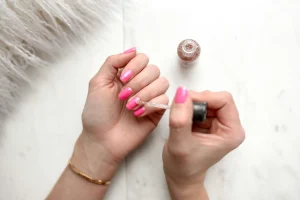 Do you instinctively reach for your phone the moment boredom strikes?
Do you instinctively reach for your phone the moment boredom strikes?
Are you looking for healthier and more engaging ways to spend your free time?
If so, you’re in good company. Lots of teens today want hobbies that are fun, creative, and genuinely fulfilling. These activities can also be a good way to learn new skills, make friends, and boost happiness.
In this article, I’ll share a collection of perfect hobbies for teens. Some are classics everyone loves, while others are more niche.
(If you want to improve your focus and reduce procrastination, make sure to download the free quick action guide below.)
FREE QUICK ACTION GUIDE:
Get your FREE copy of
12 Guaranteed Ways for Students to Improve Focus and Reduce Procrastination.
The guide has already been downloaded thousands of times, so don't miss out!
Why hobbies matter for teens
Hobbies aren’t just a way to fill up your free time. They can also build your confidence and shape the person you become.
Some benefits of exploring healthy and creative hobbies include:
- Discovering new interests and passions
- Developing valuable skills, like time management and teamwork
- Building new and meaningful connections
- Boosting confidence and self-worth
- Increasing sense of fulfillment and achievement
- Improving mental and emotional well-being
- Lowering stress and improving emotional regulation
The key is finding hobbies that are meaningful and engaging for you, so you always have something to look forward to.
How to choose the right hobby
Finding a hobby that suits you is all about experimentation. Here’s how you can start looking for something that sparks your interest:
- List activities that catch your eye. Do a quick online search or ask friends and family for recommendations. Write down anything you’re curious about, whether it’s music, sports, art, or something entirely new.
- Check your time and budget. Choose hobbies that fit comfortably into your schedule so they don’t interfere with your studies or other important commitments. Make sure they’re also financially sustainable, so you won’t have to stretch your finances to enjoy them.
- Experiment freely. Try different activities with the mindset that you’re exploring, learning, and growing. You don’t need to commit too much time or money at first, so there’s no pressure to stick to something you don’t enjoy. Remember that it’s perfectly normal for your hobbies to change as your interests evolve.
Take your time when exploring different hobbies. The right one should keep you motivated, energized, and excited enough to come back for more.
It should also add a little extra joy and meaning to your life.
Best hobbies for teens

Whether you want to be creative, stay active, or connect with others, there’s a hobby out there that fits the bill.
Let’s explore some of the best hobbies for teens.
Creative & artistic hobbies
Creative hobbies are some of the most rewarding ways to spend your free time.
These activities can be both relaxing and inspiring. They allow you to explore your imagination, express your thoughts and emotions, and see the world in new ways.
Drawing/painting
Creating art can be done using various tools, including pencils, pens, markers, paint, watercolors, or digital tools. This activity can boost creativity, enhance fine motor skills, and provide an outlet to express yourself.
Starter supplies are usually accessible and affordable, and there are plenty of tutorials online.
Photography
Capturing photographs helps you see the world from fresh perspectives and stay present in the moment. It’s also a great way to sharpen your observational skills and develop your storytelling abilities.
Additionally, photography allows you to preserve precious memories and moments. This means this skill might come in handy at parties, birthdays, weddings, and other special events.
You don’t need a professional camera when you’re just starting out. A basic phone camera is more than enough. If you’d like, you can invest in a beginner-friendly camera for about $300-$600 and slowly upgrade your gear as your skills improve.
Writing/journaling
There are many forms of writing to explore, from creative stories and poetry to journaling and non-fiction. This hobby helps you enhance your communication skills and practice self-reflection.
Getting started with writing is really simple, as all you need is a notebook or a writing program like Microsoft Word.
Music
Playing an instrument, singing, producing music, or songwriting are all great ways to immerse yourself in the world of music.
Building your musical skills can enhance mood, boost memory, and reduce stress. It can also be a social activity through bands or choirs.
Music or singing lessons can be a bit pricey, but there are many free resources and videos available online to help you get started.
Crafting

This includes DIY projects such as knitting, crocheting, jewelry making, pottery, or clay sculpting.
Using your hands to create something new and beautiful can boost your creativity and problem-solving skills. The pieces you create might even serve a useful purpose or make for a heartfelt gift.
Best of all, many of these projects require only simple, affordable, and easy-to-find materials.
Cooking
Learning to cook is one of the most valuable life skills for teens to pick up. Plus, the dishes you make can be enjoyed and shared with friends and family.
You can experiment with cooking by trying popular recipes you find online. Other ways to get started include hosting small cooking sessions with friends or joining a cooking class or club.
It doesn’t take much to try cooking, since you likely already have the basic equipment in your kitchen. If you’re unsure of where to start, ask your parents if you can help them make dinner.
Physical & outdoor hobbies
If you’re feeling adventurous or sporty, physical and outdoor hobbies are an excellent way to take a healthy break from screens.
They offer many benefits, from improving your health to enhancing your mood, to reducing stress, and connecting with nature.
Running
Running is a popular and accessible hobby that can boost your heart health, stamina, and mental well-being.
You can enjoy it solo for some quiet time or run with friends for extra motivation. And if you love a good challenge, you can gradually aim for faster personal records and work toward beating your own.
All you need to get started are comfortable shoes, breathable clothing, and a safe route to run on.
Cycling
Cycling offers plenty of health benefits. Examples include strengthening your muscles, improving your coordination, and enhancing your posture. It’s especially enjoyable when you can explore scenic trails or join group rides with friends.
To get started, you need a reliable bike and a high-quality helmet. A decent bike typically starts at around $700-$800, which can be pricey for students. But you can often find good secondhand bikes for much less.
Skateboarding

Looking for an activity that combines creativity with physical challenges?
If so, you can give skateboarding a try. This hobby can improve your balance and coordination. It also allows you to be creative through the different tricks you learn.
Getting started is pretty simple. All you need is a quality skateboard, helmet, knee pads, and other safety gear.
Hiking
If you love spending time in nature, give hiking a go. It boosts heart health, strengthens muscles and joints, relieves stress, and reduces anxiety. Exploring new trails also creates a sense of adventure, especially when done with friends.
You may need gear such as hiking boots, gloves, a backpack, weather-appropriate clothing, and trekking poles. You can start with easier routes and gradually upgrade your equipment as you take on more challenging hikes.
Pilates
Pilates is an everyday stress-relief activity that combines controlled movements, core strengthening, and focused breathing. Through this practice, you can work on improving your posture, stability, flexibility, and overall body awareness.
All you need to get started is a mat and a comfortable space. You can join classes at a studio or gym, or you can learn at home by following free tutorials online.
Gardening
Growing plants and vegetables can help you develop patience and a sense of responsibility. Plus, watching your plants bloom and thrive is a rewarding experience in itself.
Gardening can also be a practical life skill. Depending on what you grow, you can enjoy your harvest or share it with friends and family.
Basic tools and seeds are affordable, and you can choose to garden either indoors or outdoors. If you don’t have access to a garden, consider smaller planters for your balcony or windowsill.
Tech & intellectual hobbies
If you enjoy challenging your mind or working with technology, the following hobbies can be both fun and rewarding.
Coding
Learning to develop websites, apps, and software can be an interesting experience. You’ll also get to improve your problem-solving skills, logic, and attention to detail. Additionally, learning to code can be beneficial for your future career or endeavors.
It’s affordable and easy to start. There are plenty of free resources, courses, and videos online to help you pick up the basics. Codecademy, for example, is a great place to start.
Chess

If you enjoy challenging yourself and thinking strategically, you should give chess a try. This board game will help sharpen your critical thinking skills.
There are a few options for you to start dipping your toes into this hobby. You can play online against other players or bots, join a school club or local community, or even ask your friends or family to teach you chess.
If you want to get started right away, Chess.com makes it easy to create an account, learn the game, and start playing against people from all over the world.
3D printing
Creating pieces with a 3D printer can be a fun activity that blends design and technology. It’s bound to build your creativity and technical skills.
You can experiment with creating a wide range of items, from pen holders and phone cases to fidget toys, vases, and lampshades.
This hobby can be costly since 3D printers, including budget or entry-level models, typically start at around $100-$400. However, they offer endless possibilities for custom creations.
If you already have a 3D printer and want to get started, check out Thingiverse for designs.
Learning a new language
Learning a new language is a fun and engaging way to strengthen your memory and improve your communication skills.
This hobby is perfect for those who enjoy traveling or connecting with people from different countries and cultures.
Getting started is simple. That’s because there are countless resources, apps, online courses, and textbooks available for free or at low cost. Duolingo is one of the most popular and fun to use.
Astronomy
Do you enjoy stargazing or learning about cosmic events? If so, you can look into building a hobby around astronomy. This activity typically involves studying the stars, planets, constellations, and space.
You can jump right into this hobby by getting a simple pair of binoculars and looking up a sky chart or star map online. A telescope isn’t essential, but you may consider getting one as you become more familiar with navigating the night sky.
Reading

Reading is a timeless hobby that offers numerous benefits. This includes expanding your vocabulary and enhancing your storytelling skills.
You can dive into fictional worlds to spark your imagination or explore the non-fiction genre to gain new knowledge.
Books are usually affordable, and you can also borrow them from your school library or get a membership at your local library. You can also try different formats, such as e-books, physical books, or audiobooks, to determine which one you enjoy most.
Social & community hobbies
Looking to expand your social circle and make new friends with similar interests?
The following hobbies help you forge new connections. You’ll also gain opportunities to share advice and experiences, and become a more effective team player.
Theater
Acting, directing, scriptwriting, or stage production are all valuable skills to have. They may help build your confidence and creativity.
School or community theater groups are a good place to start.
Dancing
Dancing improves your fitness, coordination, and mood, making it a suitable activity for many teenagers.
You have numerous choices when it comes to dancing, including hip-hop, ballroom, and contemporary.
Classes and school clubs can help you learn the ropes quicker, but you can also watch online tutorials for free.
Volunteering
Volunteering helps you develop essential skills in communication, leadership, and social interaction. In addition, it fosters empathy and a sense of responsibility. It’s also incredibly rewarding to know you’re making a positive impact in the lives of others.
Opportunities for volunteering can vary widely. Examples include helping out at animal shelters or supporting local events. Most of these experiences are free to participate in.
Clubs
Joining interest-based clubs, such as robotics, debate, dance, or art groups, is a fun way to expand your social circle while learning new skills.
Many schools offer these clubs, and they’re often available at little to no cost.
Content creation
Creating and editing videos, blogs, or podcasts helps improve your creativity and technical skills over time. You can also work on building an online presence and connecting with an audience through the media you share.
A smartphone and free editing tools are all you need to get started.
Hobbies for teen girls
Before we dive deeper into this category of hobbies, keep in mind that many aren’t limited by gender.
While there are hobbies that teen girls tend to gravitate toward, boys can also pick up and enjoy some of them too.
Nail art

Nail art is a fun way to express your creativity through different designs, patterns, and colors. Your skills might even open the door to a small business opportunity in the future.
All you need is basic nail polish and a brush. As you learn new techniques, you can invest in more materials, like stencils, rhinestones, extensions, and stickers.
Makeup
Makeup can be both a creative and practical hobby. It’s a skill that can boost your confidence and lead to future career opportunities in the beauty and fashion industry.
Makeup can be pricey. However, you can start with a few essential products and tools and watch free tutorials online to learn the basics.
Scrapbooking
Scrapbooking is a popular method for preserving memories. It’s also a way to express yourself using photos, stickers, stamps, and decorative paper. It helps you develop an eye for design and attention to detail, and you can even create scrapbooks as heartfelt gifts for friends and family.
It’s also an affordable hobby to dive into. You can start with just a few supplies and gradually expand your collection over time.
Hair styling
Hair styling is the perfect hobby to pick up if you love experimenting with braids, curls, dyes, and updos. It allows you to express your creativity while also giving you a practical skill that can come in handy for special occasions or events.
You can practice hair styling on a mannequin head before trying it out on yourself or other people.
Clothing making/fashion designing
Designing and making clothing or fashion accessories is an exciting and fulfilling hobby. It’s an amazing feeling when you get to see your creations come to life. It can also create future opportunities in the fashion industry.
There are many ways to get into clothing making. You can start by learning how to sew, knit, or crochet, and by experimenting with different patterns and materials.
Baking

Baking is one of the most rewarding hobbies on this list and also a useful skill to develop. It helps you build patience, precision, and attention to detail. You also get to enjoy the results of your hard work and share them with family and friends.
Getting started is affordable and simple with plenty of free recipes available online.
Hobbies for teen boys
These are hobbies that tend to be especially popular with teenage boys, but girls can give them a try too.
BMX riding
BMX riding is an exciting way to stay active while challenging yourself in various ways. This hobby helps build coordination and determination.
Safety is key, so be sure to invest in quality protective gear and a reliable bike. It’s also crucial to keep it well-maintained and in good condition.
By joining a local BMX club, you can gain valuable guidance, support, and opportunities to improve your skills.
Weightlifting
Weightlifting enables you to increase your strength and develop discipline. You may also have the opportunity to connect with and seek support from others who share the same passion for fitness.
To ensure your safety, begin with lighter weights and simple exercises. While you do so, you can focus on learning the proper form and technique to prevent injury.
For more information, check out the many YouTube channels that give out great free information, such as Jeremy Ethier’s channel.
Martial arts
Martial arts can teach self-defense, discipline, and focus. They’re also excellent for improving your fitness and confidence.
Many local gyms and studios offer beginner-friendly classes, so you can try different forms of martial arts to see what you like best.
Fishing

Fishing is a relaxing hobby that allows you to connect with nature and develop patience. It also makes for a great bonding activity with friends or family.
It can be a bit costly to start, since you’ll need a fishing rod, basic gear, and access to a good fishing spot. Be sure to also check local regulations and laws before fishing in any location.
Woodworking
Woodworking gives you the chance to craft furniture, decorations, and practical items with your own hands. It’s a hobby that enhances creativity and attention to detail.
You can start small with basic tools and beginner projects, then gradually work your way up. Free video tutorials are widely available online, and your local library may also have helpful woodworking books.
Drones
Flying drones blends technology with outdoor fun. You can capture breathtaking aerial photos and videos, or simply enjoy the challenge of learning how to maneuver a drone.
It can be pricey, as beginner models usually range from $200-$500. But it’s a rewarding experience. Before flying, it’s advisable to check your local regulations.
Conclusion
The hobbies you choose today can shape the person you become tomorrow.
Consider this: Warren Buffett credits his teenage hobby of reading financial reports with launching his investment career. Serena Williams began playing tennis at the age of three. Mark Zuckerberg began coding in middle school.
But here’s the key insight: it’s not about finding the “perfect” hobby or the one that looks best on college applications. It’s about discovering activities that genuinely energize you and help you grow.
Feel free to try out a couple of hobbies from the list until you find one that feels enjoyable and fulfilling.
Not only will this bring you joy in the present, but it can also help you build valuable skills and cultivate values that will benefit you for years to come.
If you want some guidance in discovering your passions and getting on the right track, I’m here to help.
My coaching program for teens will empower you to explore your interests, build your confidence, and develop the skills you need to thrive!
(If you haven’t already downloaded your free quick action guide, get your copy below.)
FREE QUICK ACTION GUIDE:
Get your FREE copy of
12 Guaranteed Ways for Students to Improve Focus and Reduce Procrastination.
The guide has already been downloaded thousands of times, so don't miss out!







 Do you feel like you have too much on your plate?
Do you feel like you have too much on your plate? Working part-time as a student comes with many benefits, besides a paycheck!
Working part-time as a student comes with many benefits, besides a paycheck!

 The right book read at the right time has the power to change your life.
The right book read at the right time has the power to change your life. Written in 1945 by George Orwell, Animal Farm is a political satire that takes place on a farm. The animals, tired of being exploited by their human masters, overthrow them and set up an egalitarian society.
Written in 1945 by George Orwell, Animal Farm is a political satire that takes place on a farm. The animals, tired of being exploited by their human masters, overthrow them and set up an egalitarian society. Beautifully written by French author Antoine de Saint- Exupéry, The Little Prince tells the story of a young boy living in a distant land with a unique flower – or so he thought.
Beautifully written by French author Antoine de Saint- Exupéry, The Little Prince tells the story of a young boy living in a distant land with a unique flower – or so he thought. Set in World War 2, The Boy in the Striped Pajamas tells the story of nine-year-old Bruno, the son of a German commandant.
Set in World War 2, The Boy in the Striped Pajamas tells the story of nine-year-old Bruno, the son of a German commandant.
 In Indistractable, Nir Eyal details the things that cause us to get distracted. The author explains why turning off all our devices (phones, computers, etc.) isn’t always the right way to overcome distractions.
In Indistractable, Nir Eyal details the things that cause us to get distracted. The author explains why turning off all our devices (phones, computers, etc.) isn’t always the right way to overcome distractions. Create lasting habits with this powerful book by Stephen Guise.
Create lasting habits with this powerful book by Stephen Guise. “Life is not about you. It’s about what you do for others.”
“Life is not about you. It’s about what you do for others.” Make Your Bed contains ten life lessons that Admiral William H. McRaven learned during his Navy SEAL training.
Make Your Bed contains ten life lessons that Admiral William H. McRaven learned during his Navy SEAL training.
 Teens today face new challenges like cyberbullying and constant online distractions.
Teens today face new challenges like cyberbullying and constant online distractions. This book aims to encourage you to adopt a powerful and energising morning routine.
This book aims to encourage you to adopt a powerful and energising morning routine. “Stop comparing yourself to others – you’re special just as you are!”
“Stop comparing yourself to others – you’re special just as you are!” “Don’t worry about your failures, worry about the chances you miss when you don’t even try…”
“Don’t worry about your failures, worry about the chances you miss when you don’t even try…” Many teenagers and students aspire to be just like their favourite athletes.
Many teenagers and students aspire to be just like their favourite athletes. Why Didn’t They Teach Me This in School? is a fantastic book for students who want to improve their money management skills.
Why Didn’t They Teach Me This in School? is a fantastic book for students who want to improve their money management skills.
 This book invites teenagers to defy self-doubt, fearlessly explore and discover, and develop confidence in themselves.
This book invites teenagers to defy self-doubt, fearlessly explore and discover, and develop confidence in themselves. This book‘s philosophy centres around the idea that harnessing positive thinking can increase your happiness and motivation to beat stress.
This book‘s philosophy centres around the idea that harnessing positive thinking can increase your happiness and motivation to beat stress. Being a teen can be tough. Richard Carlson understands this, and explains in Don’t Sweat the Small Stuff for Teens how teenagers can learn to thrive.
Being a teen can be tough. Richard Carlson understands this, and explains in Don’t Sweat the Small Stuff for Teens how teenagers can learn to thrive. Yeonmi Park shares her fascinating story in In Order to Live: A North Korean Girl’s Journey to Freedom.
Yeonmi Park shares her fascinating story in In Order to Live: A North Korean Girl’s Journey to Freedom. 


 You may have heard of active listening before.
You may have heard of active listening before. It isn’t easy to help teens with anxiety.
It isn’t easy to help teens with anxiety.







